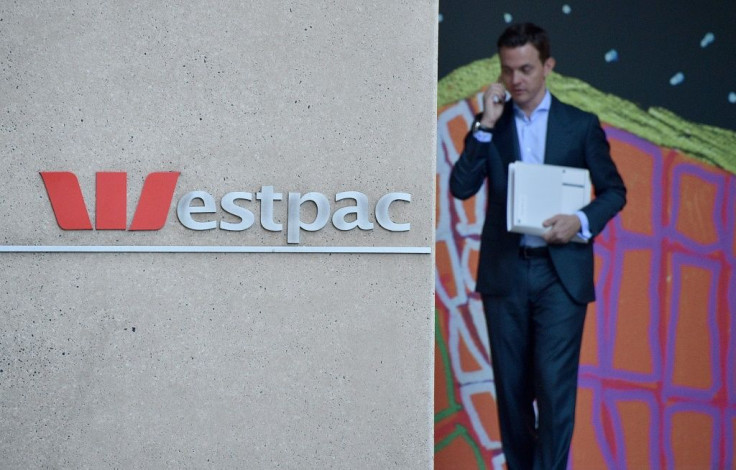Australia's Westpac Faces Huge Fine For Money-laundering Breaches

Australian banking giant Westpac faces a massive fine after being accused by regulators Wednesday of "serious and systemic" breaches of money-laundering laws involving more than US$7 billion.
Australia's financial intelligence agency, AUSTRAC, said it had taken legal action against Westpac for failing to report more than 19.5 million international fund transfers, including "high-risk transactions" to Southeast Asian nations potentially linked to child exploitation.
Overall, AUSTRAC chief Nicole Rose said, Westpac violated the anti-money laundering and counter-terrorism financing act 23 million times.
She did not comment on the amount of a potential penalty for Australia's second biggest bank, saying it was a matter for the courts.
But in its submission to the Federal Court, AUSTRAC noted that each of the 23 million breaches attracts a civil penalty "between Aus$17 million and Aus$21 million" -- theoretically putting the bank on the hook for up to Aus$483 trillion (US$330 trillion) in fines.
The global economy was worth almost US$86 trillion in 2018, according to the World Bank.
Australia's largest lender, the Commonwealth Bank (CBA), last year faced a theoretical maximum fine of Aus$1 trillion after AUSTRAC found it had failed to report on 53,500 transactions, a small portion of the alleged breaches by Westpac. The CBA ended up negotiating an Aus$700 million settlement.
Westpac shares closed down 3.3 percent on news.
Among the most damaging allegations, the regulator accused Westpac executives of "indifference" to clear evidence that some international transfers were used to fund child exploitation.
"Since at least 2013, Westpac was aware of the heightened child exploitation risks associated with frequent low value payments to the Philippines and Southeast Asia, both from AUSTRAC guidance and its own risk assessments," it said.
The regulator added that senior Westpac management was "specifically briefed" in June 2016 on these risks with respect to one of its money transfer channels.
In response to the charges, Westpac's American-born CEO, Brian Hartzer, insisted bank executives have "absolutely not been indifferent" to the issue.
He later held a conference call saying he was personally "disgusted" by the subject of some allegations but declined to say whether he would resign.
Hartzer also said many of the transfers cited by AUSTRAC as unreported were "recurring, low-value payments" from foreign government pension funds to people living in Australia.
Prime Minister Scott Morrison, who leads a conservative, pro-business government, said he was "appalled" by the allegations against Westpac and said Australia's banks need to "lift their game".
Rose told a news conference that Westpac's failures "resulted in serious and systemic non-compliance" with anti-money laundering and counter-terrorism financing laws.
She said the unreported transactions amounted to more than Aus$11 billion (US$7 billion) from 2013 to 2018.
Westpac "failed to appropriately assess and monitor the ongoing money-laundering and terrorism financing risks associated with the movement of money into and out of Australia through correspondent banking relationships", she said.
The AUSTRAC action added to a host of problems challenging Australia's banking industry, one of the world's most profitable.
The country's four biggest banks -- CBA, Westpac, National Australia Bank (NAB) and ANZ -- were the target of a royal commission of inquiry that early this year exposed rampant malpractice across the sector.
It found banks had charged fees to dead people and for no services at all, used aggressive selling tactics and provided poor advice that led to significant financial upheaval for clients.
All the banks have reported significant hits to profits as they reimburse hundreds of millions of dollars to wronged customers.
In the latest such development, NAB agreed on Wednesday to a Aus$49.5 million settlement of a class action suit for tens of thousands of customers who were sold junk credit card and personal loan insurance, the law firm that led the suit said.
© Copyright AFP 2024. All rights reserved.





















